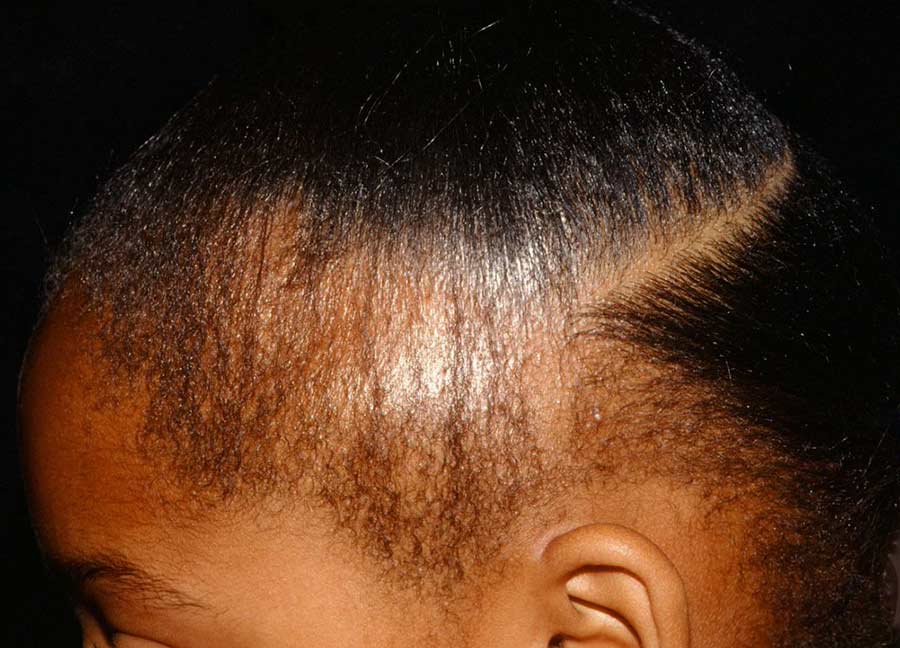Thinning Hair: 12 Must Know Natural Remedies for thinning hair
Check out NaturalHairZone.com’s top ten hacks to combat thin black hair and natural remedies for thinning hair that can start you off on your hair journey.
Ok, grab that notepad while we delve into:-
*Pssst, for a comprehensive list of all the natural hair lingo to know when you embark on your exciting Journey, NaturalHairZone.com’s Natural Hair Glossary can bring you up to speed on the top 50 natural hair buzz words.
1. Jamaican Black Castor Oil
If you struggle with thinning hair and want to combat this – Jamaican Black Castor Oil is an oil you can add to your staple products.

To get the most out of JBCO, apply a small amount evenly onto your scalp during your LOC or LCO regime – then massage it into your hair, working it through the shaft and into your roots.
Depending on your results, you can start using this product at least three a week and switch up or down.
Be sure to give your scalp a thorough massage for at least 2 to 3 minutes, and you can add a bit of peppermint oil to stimulate your scalp.
With consistent application of JBCO and other good hair practices, you are likely to see results in the texture of your hair.
2. Shea Butter
Shea Butter is every natural’s hair staple and has been used on black hair for centuries, even before the natural hair movement became a thing.
Be sure to purchase organic Shea Butter that has been naturally processed and has no additives.
Shea Butter is a great addition to your LCO or LOC regime and works particularly well with high-porosity hair. On the flip side, do you know if you have low-porosity hair?
As with JBCO, use this consistently to see great results.
3. Co-wash
One of the ways to avoid stripping moisture from your hair is to introduce co-washing into your regime – this involves using conditioner to cleanse your hair in place of shampoo.

After co-washing, you can also do an ACV rinse to cleanse your scalp.
Should you opt to use shampoo, make sure you use a sulfate-free shampoo that does not have the stripping qualities of ordinary shampoos.
You can also invest in one of NaturalHairZone.com’s preferred products – African Black Soap to cleanse your hair.
4. Regular Deep-Conditioning
Another quick tip is to incorporate regular deep conditioning into your regime.
To get the most out of this, you can start with deep conditioning weekly and scale down to bi-monthly treatments as you see results.
Naturals who incorporate regular deep conditioning treatments into their hair regime see a vast improvement in the quality of their hair strands and moisture levels.
This plays a huge role in thicker, longer natural hair.
5. Hair Vitamins
Na Ha ZO is not a big advocate of self-prescribed hair vitamins and is a big proponent of getting your vitamins from your diet.
However, based on the recommendation of your health care professional, should your body be unable to absorb adequate amounts of vital nutrients or suffer deficiency; hair vitamins are a great way to thicken your hair.
However, as a word of caution, be sure to get advice as some hair vitamins are unregulated, and some of the products touted on the market may adversely affect your hair and overall health.
Using hair vitamins to improve the quality of one’s hair needs to be done responsibly.
6. Protein Treatments
If you struggle with thinning and breaking hair, you may need to incorporate protein treatments into your regime.
Regular protein hair treatments (once a month for some and once every 3 of 6 months) for others can greatly improve your hair quality.
This treatment strengthens your hair strands, making them less likely to snap and break.
Protein treatments should, however, be approached with care. If you leave the treatment on your head for too long, you will suffer more hair damage, worsening your thinning hair. One sign of protein overload is brittle, fragile hair.
Natural Hair DIY
One of the ways to use protein treatments is to try DIY products at home with foods in your pantry that may not be too harsh on your hair (and to make sure you leave the treatment for only a short period).
If you are using store-bought protein treatments, follow the instructions carefully.
.
7. Styling
How you style your hair may be a big red flag in thinning hair – from hairstyles to hair products.

Certain so-called natural hair products are notorious for causing thinning hair by causing damage to the shaft through pressure or pulling on the edges.
Examples of these hairstyles are thin braids, heavy braids on short, thin hair, and glue-in wigs – especially when they place sustained pressure on the nape and edges.
It is important to look at other styling options that put less strain on your hair, such as cornrows, box braids (for some) and secured wigs.
Natural Styling Products & their Unwanted Effects…
Also, the wrong styling products snag onto hair, further causing split ends which gives the appearance of thin hair. Wide-tooth combs and Denman brushes should be the go-to to avoid thinning hair and split edges.
You will also need to minimise the use of heat on your hair and when you do use heat, make sure you are familiar with how to prevent heat damage on natural hair. #16.
8. Trim your Hair
Speaking of which, if you suffer from thin hair, it may be advisable to trim your hair. Make sure a responsible and informed stylist does this.
Do not hold onto your thin ends; rather, get into the habit of trimming as and when needed, as split ends can up your hair shaft and cause worse breakage.
9. Big Chop
The Big Chop may seem drastic, but it is worth doing in the long term if your hair is badly damaged.
Some naturals have no issues taking the big leap, cutting it all off, and starting afresh – especially if the thinning hair is extreme or due to a poor dye job, pregnancy or transition from relaxed to natural.
Should you decide to go this route, be sure to get it done by a responsible and knowledgeable natural stylist. #24
10. Diet
Improving your diet may be worthwhile if you are inclined to have thick hair but suffer from thin stands.

Also, if you naturally have finer strands, a healthy diet will ensure your hair does not suffer any setbacks.
You will see the improved quality in your hair strands by eating foods for hair growth and thickness #15, such as those rich in Zinc, Iron, Omega 3, anti-oxidants, Iron, and other nutrients.
Reducing your intake of processed foods and other foods with little nutritional value would be best.
Not only will your hair thank you for this, but you will surely see your mood and overall well-being lightened
11. Finger Detangling
Finger detangling should be every natural’s number one styling tip.
It allows the gentle removal of tangles and knots that a brush or comb would typically rip out.
When detangling your hair in this way, you need to have patience, and by feeling your strands, you have a sense of whether it needs more moisture or protein treatment.
It also gives instant feedback on whether your hair is flourishing or requires some TLC.
Finger detangling takes getting used to, especially if it is something new; however, once you get the hang of it, you will be hard-pressed to run a comb through your hair again.
12. Regular Hot Oil Treatments
Regular hot oil treatments are a MUST if you want to see real improvement in the quality of your hair.
Depending on your hair porosity and needs, coconut oil, olive oil, and castor oil used regularly in your hair regime will surely make your strands look thicker and healthier.
Be sure to use the correct technique to maximize the benefits for your hair and invest in a good heat cap, or don’t throw your shopping bags away, to use to trap the heat onto your strands.
The Last Word
Some of the tips may seem overwhelming.
If it is, start slowly and incorporate tip by tip into your regime until it is second nature, and you don’t even have to think about it.
Also, maintain good hair practices after your strands have thickened to ensure the benefits last well into your length retention journey.
Till then, thicken that crown with love! As always, we’d love to get your comments below…

